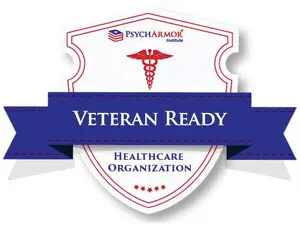10 Reasons for a Recovery Checkup
Most people have an annual physical and a twice-annual dental checkup to maintain good health. If you’re sober, is there any reason to have a recovery checkup regularly? Possibly. One major benefit might be to avoid burnout by reevaluating your wellness goals, but there could be other benefits more unique to your circumstances. Let’s take a closer look.
What’s a Recovery Management Checkup?
Continuing care is an essential factor in successful addiction recovery. Many healthcare professionals equate this process to effectively managing any other type of chronic condition, such as asthma, diabetes, or heart disease. When someone receives a diagnosis of alcohol use disorder (AUD) or substance use disorder (SUD), it sheds a lot of light on their necessary treatment and wellness goals, and addiction specialists often create a continuum of care plan as a guide for how to move forward.
But continuing care shouldn’t be a “one and done” proposition. In 2021, Alcohol Research released a report examining the impact of continuing care on recovery. Results indicated that “continuing care of longer duration that includes more active efforts to keep patients engaged may produce more consistently positive results. Moreover, patients at higher risk for relapse may benefit to a greater degree from continuing care.”
Some periodic care techniques included, but weren’t limited to:
- Mindfulness-based relapse prevention
- Additional cognitive behavioral therapy
- Telephone monitoring and counseling
- Various alumni and outreach efforts
Additionally, the study authors noted that “recovery management checkups (RMC) is a continuing care intervention that provides individuals who have entered treatment for SUD with long-term monitoring of their substance use and active attempts to re-engage them in treatment when needed.” Some people received RMCs for up to five years after initial treatment and maintained their sobriety more easily due to this approach.
Does a RMC automatically mean returning to rehab? Not particularly—it really depends on each individual’s circumstances and needs.
10 Reasons for a Recovery Checkup
Scheduling regular recovery checkups with your doctor, therapist, or addiction specialist is highly beneficial for several reasons, especially if you’re also undergoing treatment for a physical or mental health condition. Here’s how it might help you.
- Monitoring progress. Consistent checkups allow healthcare professionals to assess your progress. They can track improvements in symptoms, functioning, and overall well-being. This helps in adjusting treatment plans if necessary or identifying areas that may require additional attention.
- Prevention and early intervention. Some people often feel adrift after completing a treatment program, so it’s vital to use ongoing monitoring to identify potential issues before they escalate, as this approach helps prevent relapse.
- Discussion of challenges. Checkups offer a safe space to discuss any recovery challenges or difficulties. Asking for an open dialogue with your healthcare provider allows them to provide guidance, support, and coping strategies.
- Care coordination. For individuals receiving care from multiple healthcare professionals, checkups allow for coordination and communication among different members of your healthcare team. This ensures an integrated, holistic, and whole-person approach to your recovery.
- Health education. Medical providers can use checkups to provide education about your condition, additional treatment and condition management options, and helpful lifestyle factors. This empowers you to make informed decisions about your health.
- Therapeutic support. If you’re seeing a therapist, recovery checkups provide an opportunity to discuss your emotional well-being, coping mechanisms, and any changes in your life that may impact your mental health.
- Emotional support. Knowing you have continued therapeutic empathy and encouragement positively impacts your motivation and resilience in the recovery process.
- Lifestyle evaluation. You learned in treatment what a critical role lifestyle factors such as diet, exercise, sleep, and stress management play in successful recovery. A recovery checkup allows access to additional knowledge for how to enhance the effectiveness of your treatment plan.
- Medication management. For individuals taking medications as part of treatment, checkups provide an opportunity to review the effectiveness of the current medication regimen. It’s always beneficial to address problematic side effects or the need for an adjustment sooner rather than later.
- Setting realistic goals. Use your recovery overview to reassess and refine goals. Collaborating with your healthcare provider on achievable objectives helps motivate and guide your efforts.
You always have the power to take control of your health, and managing recovery effectively isn’t any different. Consider all the ways to make continuing care work for you.
How the Seabrook Model Helps You
At Seabrook, our goal is to offer the best evidence-based solutions that fit into a customized continuum of care plan for each individual. For more than 40 years, Seabrook’s three-phase, multi-faceted care model has delivered successful outcomes for hundreds of people. One essential component of the program is for people to undergo individual, group, or family counseling at least weekly for nearly a year upon completion of their outpatient phase so they consistently work with recovery professionals to design a more promising future.
Whether it’s your first time in rehab or you’re returning after a relapse, we invite you to experience this transformational process for yourself. Seabrook has four award-winning addiction treatment centers in New Jersey with board-certified medical care teams ready to help.




